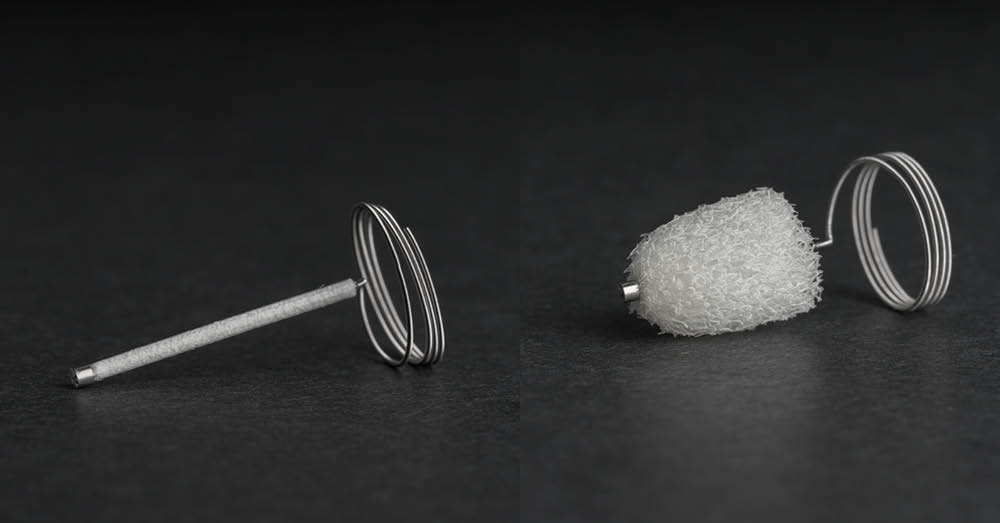
The IMPEDE® Embolization Plug, originally designed by researchers in the Department of Biomedical Engineering at Texas A&M University, has won a 2019 R&D 100 Award from R&D World magazine.
The device is owned by Shape Memory Medical, Inc., a California-based company co-founded by Dr. Duncan Maitland at Texas A&M. R&D 100 Awards are high-profile acknowledgements of the potential or existing impact of a new product or service. When Maitland worked at Lawrence Livermore National Laboratory (LLNL), he said R&D 100 Awards were one of the highest external recognitions that a team could receive for the impact of their research.
“My first reaction is tied to this history and my joy for the team members from LLNL for receiving this award. My second reaction is that the team that has worked on this project from concept to commercial sales has been hundreds of people,” Maitland said. “This has been a marathon effort by a lot of people. I am also very happy for the people at LLNL, Texas A&M University, Shape Memory Medical, Inc. and other many other institutions that have made this happen. I am fortunate to have worked with so many bright and dedicated people.”
Texas A&M contributors that are also acknowledged as part of the IMPEDE development team include Dr. Fred Clubb, Dr. Balakrishna Haridas, Dr. Staci Jessen and Dr. Brandis Keller. Clubb, clinical professor of veterinary medicine at Texas A&M and joint faculty member in the Department of Biomedical Engineering, works in the CVPath Lab on campus to provide quality data to garner answers to medical device safety questions.
“We are honored and proud to be a part of the IMPEDE development team at Texas A&M, and excited to see this device receive recognition,” Clubb said.
The IMPEDE family of peripheral vascular embolization products all include shape memory polymer (SMP). The devices are designed to provide doctors with a more effective and less risky method for treating aneurysms – blood-filled, balloon-like bulges in the walls of a blood vessel that can rupture and cause vascular damage that is debilitating or even fatal. The device quickly clots blood to block it from reaching aneurysms, tumors or other tissue.
SMP is designed to transition between two shapes, based on its environment. It can be crimped for delivery through a catheter, and it self-expands when exposed to blood and body temperature.
To date, more than 250 patients have been successfully treated worldwide with IMPEDE, and the team expects to have thousands treated in the next year or so.
Looking to the future, Maitland said there are registered human studies to use IMPEDE to better treat patients with abdominal aortic aneurysms and pulmonary arteriovenous malformations, and he hopes to expand its use even further.
“Going forward, we are trying to develop materials and devices to apply this technology to improved treatment of cancer, but peer-reviewed research funding is a slow and tricky process,” Maitland said. “We are also working on prototypes of pediatric devices. We will continue to submit grants and apply for funding.”
Awards will be presented at the R&D 100 Awards Banquet on Dec. 5 in San Francisco, California.